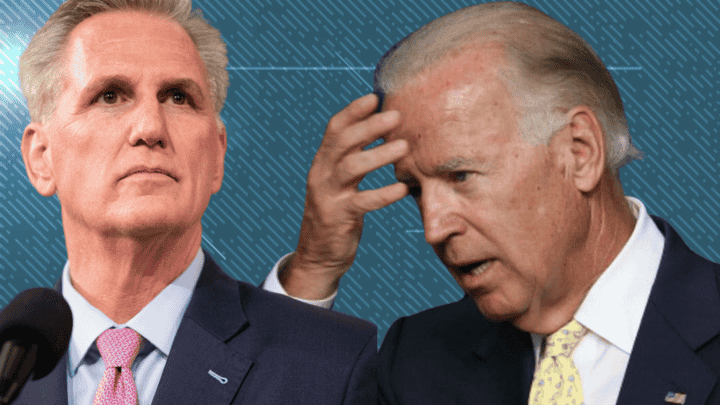Spurgeon wrote an article titled “The Down Grade” in March 1887 for his monthly magazine, The Sword and the Trowel. Some clergy were “denying the rightful deity of the Son of God, abandoning faith in his atoning death,” according to the piece, which was anonymously published but written by Spurgeon’s friend Robert Shindler. They were on a “Down Grade” away from fundamental evangelical teachings, according to Shindler.
“We are happy that the piece about ‘The Down Grade’ has stimulated notice,” Spurgeon wrote in the next month’s Sword and Trowel. Spurgeon continued Shindler’s subject later that summer. Spurgeon became the centre of controversy, and the Baptist Union, which was deeply divided on the issue, eventually voted to reprimand him.
Dr Mark Hopkins, a church history lecturer at Theological College of Northern Nigeria, explains the complicated situation.
What Was the Motive Behind Spurgeon’s Initiation?
The first question must be, “What was he trying to do?” because Spurgeon started the debate.
Spurgeon was not aiming to eject the Baptist Union’s liberals or push for an evangelical foundation for the organisation. He saw that liberalism would continue to expand and win for some time, and he did not believe that resolutions would be able to halt it. He wasn’t aiming to create a schism and form an evangelical union; the idea didn’t appeal to him, and he didn’t believe it could be a long-term answer.
Spurgeon had only two goals in mind because he lacked a positive programme: (1) to warn against the rise of liberalism (he was more concerned about Congregationalism, where it had taken root more deeply than his own denomination), and (2) to retreat into the private world of his church and related enterprises, which kept him more than busy and fulfilled.
Read More: Lizzo Truth Hurts Controversy: Everything We Know So Far
“Downgrade” Is a Term that I Use to Describe a Situation in Which
Shindler traced the history of England’s major protestant denominations since the start of Puritanism’s decline in 1662 in his first piece. Almost every non-conformist (non-Anglican Protestant) sect in England slid from orthodoxy toward an ancient form of theological liberalism known as Socinianism in the first generation after the Puritan era, he observed. Hundreds of post-Puritan churches have abandoned sound doctrine in favour of rationalistic scepticism, Unitarianism, and other liberal ideas, according to Shindler. The descent was usually gradual and practically imperceptible at first.

He claimed that when denominations abandoned Calvinism (which emphasises God’s sovereignty in salvation) in favour of Arminianism, they were frequently “downgraded” (which makes human will the decisive factor). Arianism was accepted by other communities as well (which denies the full deity of Christ). Others simply lost their ardour for truth because they grew infatuated with education and worldly wisdom.
Shindler stated, “The Presbyterians were the first on the down line.” “They gave more attention to classical attainments and other disciplines of learning… It [was, therefore] an easy step in the wrong direction to pay increased attention to academical attainments in their pastors, and less to spiritual credentials.”
Read More: Jesse Williams Controversy: He Responds to Criticism of His 2016 Bet Awards Speech
“Downgrade” Ii Is the Second Instalment of The “downgrade” Series.
A second article, titled “The Downgrade,” appeared in The Sword and the Trowel in April. It followed Robert Shindler‘s review of the history of Puritanism’s downfall. The religious leaders were to fault for the downward spiral, according to him. Even those who were orthodox in their teaching were weak in defending the faith, according to Shindler.

He used the hymn composer Philip Doddridge (1702-1751), who wrote “O Happy Day” and “Grace, ‘Tis a Charming Sound,” as an example. “He was as sound as he was affable,” Shindler writes, “but perhaps he was not always judicious; or, more likely, he was too judicious, and not sufficiently courageous and determined.”
Read More: Toby Keith Controversy: Everything We Know So Far in 2022
Grade III has been reduced.
Those who agreed with Shindler’s warnings countered with more evidence of apostasy and compromise in previously sound churches. Spurgeon’s indignation mounted as he read the answers. “Two clergymen mocked him because he thought we should pray for rain,” one individual stated. “A priceless promise in Isaiah that had comforted her had been declared uninspired by her preacher,” a woman told Spurgeon.
Read More: Jesse Williams Controversy: He Responds to Criticism of His 2016 Bet Awards Speech
Grade Iv Is Lowered.
Rather than responding to Spurgeon’s accusations, the opponents dismissed them (although both Shindler and Spurgeon had been anything but vague).

Spurgeon had been missing from the pulpit for some time due to reoccurring kidney problems. Some suggested that the Down-Grade pieces were the ramblings of a sick person. Obviously, that claim hurt Spurgeon personally.
Grade v (down)
Spurgeon’s third piece regarding the downgrade was published in The Sword and the Trowel in October. This piece, titled “The Case Proved,” was primarily made up of snippets from letters and reviews that Spurgeon had received in response to his previous works. There were two kinds of them. The first came from readers who had noticed a building issue and wished to calm the waters. They were “esteemed friends,” according to Spurgeon, who wished to “jump in between the combatants, and exclaim that there was no reason for war, but that our slogan might continue to be ‘Peace, peace!'” “They see everything through tinted glass,” Spurgeon charged, accusing such people of being “so supremely nice.”



